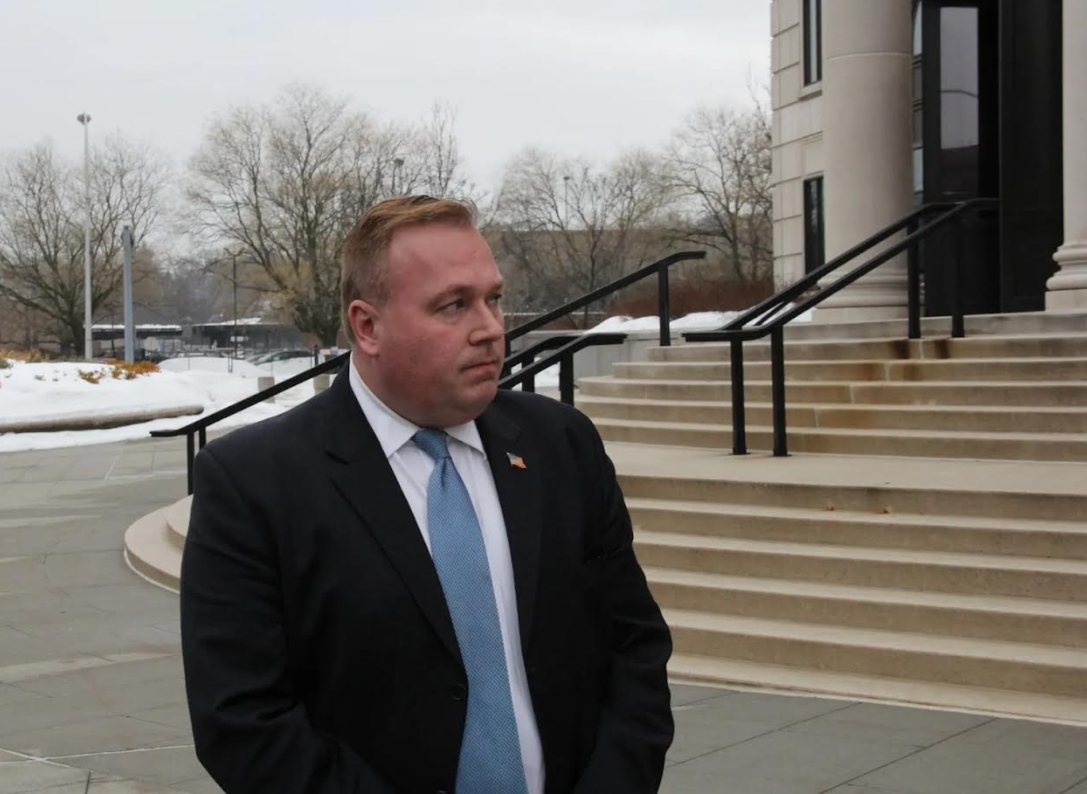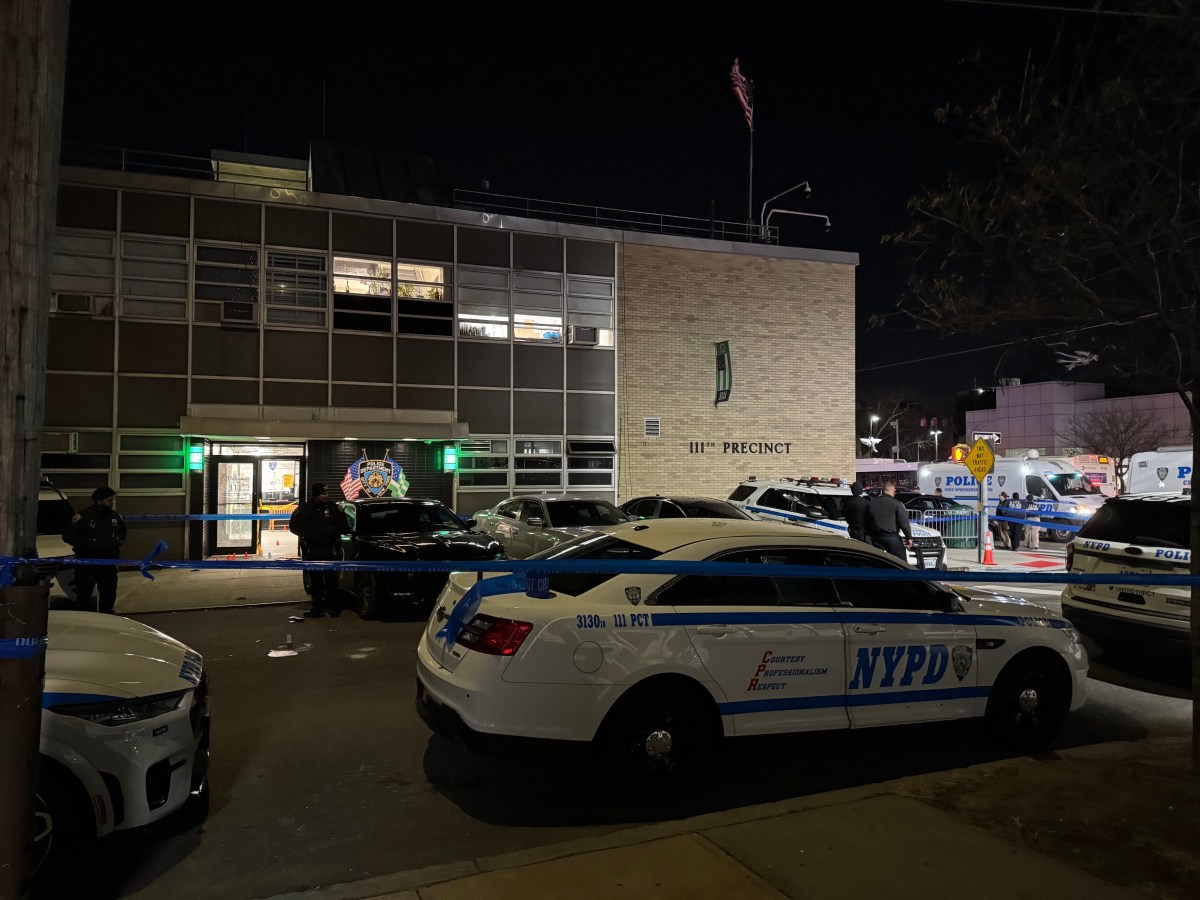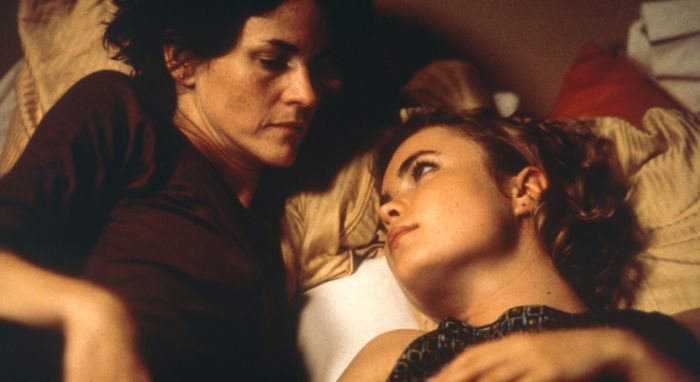
Six strangers sat in the hallowed sanctuary of Brooklyn’s Plymouth Church in December and were given information that would change their lives.
They didn’t know before they arrived at the Brooklyn Heights landmark, which was once a stop on the Underground Railroad, that they’d find out they are descendants of slaves who passed through the church on their way to freedom or are related to the abolitionist who helped create safe passage for their ancestors.
Their discoveries are the focus of a documentary called “Railroad Ties” by Ancestry and SundanceTV, which streams at ancestry.com.
The church’s history is one of legend — under Henry Ward Beecher’s leadership in the mid-1800s, escaped slaves would be hidden under the church’s foundation and Beecher would create controversy by holding mock auctions to show the horrors of slavery and actually purchase the freedom of real slaves.
With the church’s continued advocacy of justice for all, Plymouth became a most prominent Protestant church and saw visitors such as Frederick Douglass, Abraham Lincoln, and later, Martin Luther King Jr., who delivered the speech “The American Dream” on its altar.
In the film, directed by Sacha Jenkins, a chronicler of hip-hop, graffiti, punk and metal cultures, the six strangers are taken on a tour of the church and lead into the basement, where most of their ancestors passed through.
According to the church’s historians, the slaves would come mostly by water and always under the cover of darkness, staying only one or two nights in this dark basement with low ceilings.
“After learning your ancestor escaped slavery and wound up in this basement while en route to Canada — it’s an emotional experience,” Sacha Jenkins, the film’s director, said.
‘It was like time collapsed’
Gayle George, a 51-year-old writer and entrepreneur from Washington, D.C., thought she’d find out about her father’s family, which contains Native American ancestry. Instead, her mother’s family history was revealed.
“I’m an adventurous person, but one thing that gave me pause in one of the interviews was when someone said, ‘Sometimes you find something you don’t want to know.’”
But the information revealed to her has proven to be a gift. Her ancestors, John and Arabella Weems, stopped at Plymouth Church on their way to freedom in Canada. Being able to hear and speak their names has opened a new chapter of her life, she said.
“The names were really profound for me,” she said. “Reading back the family tree and then going back and back was like time collapsed. It was not that long ago … only three generations.
“Powerful is not a good word for it anymore. It was visceral — this is your family blood line,” she said.
‘Conjuring up experiences’
Scott Pratt, a medical salesman from Seattle, arrived at the church looking for Alexander Hamilton in the building’s original stained glass windows, wishfully thinking he might be related to the Founding Father.
It turns out that Pratt, 47, is the descendant of a slave, Sophia Gault Gray, who escaped with her two children and stopped at Plymouth Church along her way.
“I’m here thinking I am of Scottish, Japanese and Italian descent, so I wasn’t sure what the purpose was,” he said. “I was having a bit of a panic like ‘oh my God, I hope I’m not the protagonist of this story,’ but that was not the impression anybody was giving me.”
Pratt was overcome with emotion — pride, joy, connection to those in the room and love. He also felt sadness.
“It’s funny because somebody once said to me that sometimes people feel 10 feelings at once. But I thought, ‘I’m from New Jersey, I don’t feel 10 feelings at once,'” he said. “Then it was an overwhelming feeling of sadness, which is still something I am processing.”
His great-grandfather immigrated from Japan and later stormed Normandy Beach on D-Day, even though he had to conceal the fact that he was Japanese. Pratt’s grandmother, Muriel, told the family they had Scottish roots, too.
“When you come from a family where a Japanese heritage has been erased because of fear and now I find out that my African history has been erased out of fear — that’s not a nice feeling,” he admitted. “This was not 200 or 300 years ago. Mary, my great-great-grandmother, died in 1935 and she was somebody’s property. That is a really significant thing.”
‘Ambassadors of history’
George’s family knowledge has kept “unfolding,” and it’s allowed her to evaluate and understand her family’s dynamics better and even connect with new family members.
“I appreciate how my family stuck together and all the work they did to get the family together and keep them together,” she said. “I get now that I inherited wanting to branch out and see what else is out there and wanting to push the envelope — it was what my family embodied.”
George has also connected with the author of a book about her family in Canada, who has connected her with cousins she didn’t know she had.
“Being able to connect and being grounded in your makeup of who you are and where you come from makes it easier to go forward,” she said. “I’ve met some cousins and it feels like the ground fills in or gaps that fill in. It’s almost magical.”
For Pratt, his newfound knowledge is a tool for celebrating the lives that were lived and promoting love, forgiveness and understanding between different peoples.
“This has just enriched me,” he said. “I have a whole new family of people — we call ourselves the ‘ambassadors of history.’ Our destinies are all intertwined and through ancestry, we are all discovering that. When we put all our cultural biases aside and have forgiveness in our hearts and start the healing process, it’s amazing what can happen.”
Jenkins, who also found out about his enslaved ancestor through the Ancestry film, said that all history needs to be acknowledged for America to move forward.
“America is a beautiful nation but there are things in our history that aren’t so pretty and many of us are in denial,” he said. “Until we accept the ugly things in our history, that ugliness continues to make an attempt. America needs to recognize this as American history, not just black history.”

‘This echoes through the generations’
All these years later, Plymouth Church members are still trying to uphold the missions of the original church, according to the Rev. Brett Younger, the senior minister, and Melissa Collom of the church’s history ministry.
The congregation has what it calls its “New Abolitionists” program, which is an anti-trafficking ministry that works with social workers and the legal system to identify and assist people being held against their will.
“Even though slavery is not legal now, it still exists in a modern form,” Collom said. “Our history didn’t stop in 1850. Humanitarian values and racial equality has been important through many generations here. This echoes through the generations at Plymouth.”
The church doesn’t have many names of those who came through the Underground Railroad stop because record-keeping was a dangerous thing to do when breaking the law. The church has had to rely on the memoirs of people from the era to learn who showed up.
“Once while I was giving a tour a college student asked, ‘Why do you think the people at Plymouth risked their own freedom to do this?’ I got to say, ‘When they worshipped on Sundays, they promised to love all of God’s children,'” the Rev. Younger said. “The Underground Railroad would not have existed without people whose faith in God made them courageous.”
You can watch the film on ancestry.com for free.
































